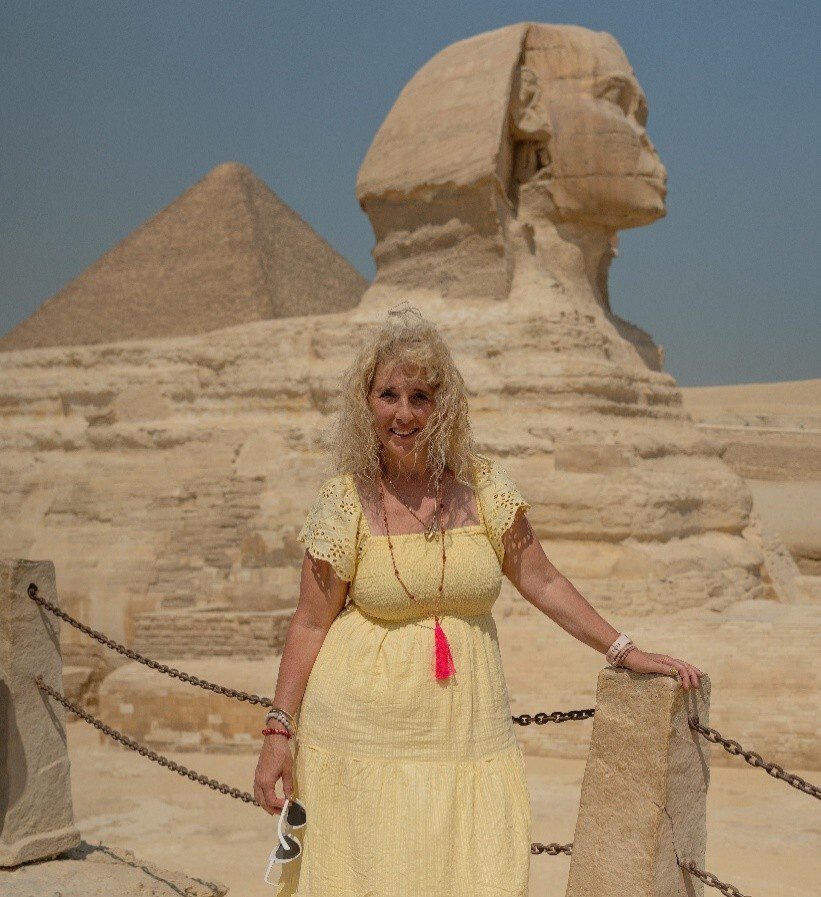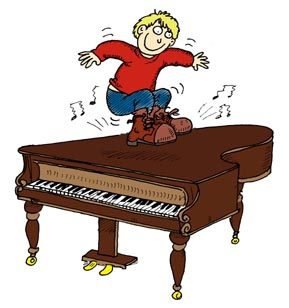
Child Behaviour Problems
Child Behaviour Problems
Children and behaviour problems … are the children behaving badly? Are the children naughty? Is it the children’s behaviour that is naughty? Why do children have behaviour problems? What is a behavioural problem? What is actually happening to a child when the behaviour is bad? Let us start by defining the word behaviour.
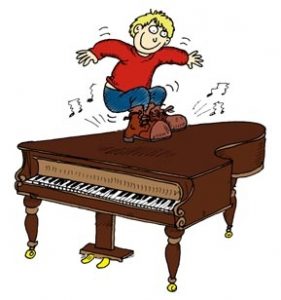 Human behaviour is the collection of behaviours exhibited by human beings and influenced by culture, attitudes, emotions, values, ethics, authority, rapport, hypnosis, persuasion, coercion and/or genetics. The way people act falls within a range with some being common, some unusual, some acceptable, and some outside acceptable limits. In sociology, behaviour is considered as having no meaning, being not directed at other people and thus is the most basic human action. The acceptability of different types of actions is evaluated relative to social norms and regulated by various means of social control. The actions and reactions of people is studied by the academic disciplines of psychology, sociology, economics, and anthropology. Human behaviour is an important factor in human society. According to Humanism, each human have a different behaviour. In summary HUMAN BEHAVIOUR means:
Human behaviour is the collection of behaviours exhibited by human beings and influenced by culture, attitudes, emotions, values, ethics, authority, rapport, hypnosis, persuasion, coercion and/or genetics. The way people act falls within a range with some being common, some unusual, some acceptable, and some outside acceptable limits. In sociology, behaviour is considered as having no meaning, being not directed at other people and thus is the most basic human action. The acceptability of different types of actions is evaluated relative to social norms and regulated by various means of social control. The actions and reactions of people is studied by the academic disciplines of psychology, sociology, economics, and anthropology. Human behaviour is an important factor in human society. According to Humanism, each human have a different behaviour. In summary HUMAN BEHAVIOUR means:
SO when we look at child’s bad behaviour or ‘naughty behaviour’, we are referring to the way a child performs, acts, conducts themselves. Depending on belief systems, cultures and customs, certain actions will appear inappropriate and unacceptable. This is then described as ‘bad’ or ‘naughty’ behaviour and then even sometimes as conditions such ADHD or Aspergers. Behavioural problems can simply be seen as the child not conducting themselves according to specific rules, beliefs and actions. Why would this happen?
POSSIBLE REASONS FOR CHILD BEHAVIOUR PROBLEMS
In the amazing 21st century world we live in today there is an abundance of reasons and explanations why we can perceive children to have behavioural problems. Let’s look at only a few possibilities. Children may be acting the way they do so as to have a holistic understanding of bad behaviour – naughty behaviour.
 In this modern day living, especially in the western countries of affluence, we have the luxury of pre made and packaged food. This luxury can be obtained from any variety store including newsagents, petrol stations and of course the grocery stores. Gone are the days of having to grow and harvest food with the convenience of pre-packed food which can be eaten on the run, quickly and disposed of easily. With this convenience also comes specific outcomes, including behavioural issues. We know that sugar and fat in a the diet can increase obesity with children but what about the chemical, mental, emotional and spiritual aspects. Processed foods have an abundance of additives and chemicals used to preserve them, allowing a longer shelf life. In doing so, the manufacturer has changed the chemical structure of the food and also added ‘chemicals’ which are NOT natural to that original food source. The additives have been know to trigger allergies and intolerances for certain children, which can create behavioural problems as well as illnesses. Research has proven that many of the preservatives used today are carcinogenic.
In this modern day living, especially in the western countries of affluence, we have the luxury of pre made and packaged food. This luxury can be obtained from any variety store including newsagents, petrol stations and of course the grocery stores. Gone are the days of having to grow and harvest food with the convenience of pre-packed food which can be eaten on the run, quickly and disposed of easily. With this convenience also comes specific outcomes, including behavioural issues. We know that sugar and fat in a the diet can increase obesity with children but what about the chemical, mental, emotional and spiritual aspects. Processed foods have an abundance of additives and chemicals used to preserve them, allowing a longer shelf life. In doing so, the manufacturer has changed the chemical structure of the food and also added ‘chemicals’ which are NOT natural to that original food source. The additives have been know to trigger allergies and intolerances for certain children, which can create behavioural problems as well as illnesses. Research has proven that many of the preservatives used today are carcinogenic.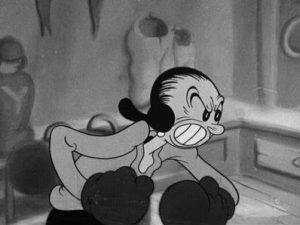 Many children in the modern day living do not get enough sleep. This maybe due to over commitments such as sport, parents working long hours, homework and even home duties. Some children can experience anxiety and excitement as they are uncertain as to where they are sleeping in regards to separated or divorced parents. Children are expected to swap houses for parental care creating uncertainty and child behaviour problems.
Many children in the modern day living do not get enough sleep. This maybe due to over commitments such as sport, parents working long hours, homework and even home duties. Some children can experience anxiety and excitement as they are uncertain as to where they are sleeping in regards to separated or divorced parents. Children are expected to swap houses for parental care creating uncertainty and child behaviour problems.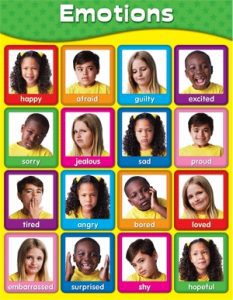 Children work mostly from their right side of their brain. This is the creative and expressive side which can not perceive what is real, compared to an adult. This is the area of imagination. The brain development matures as the child grows but in the meantime, as the child involves themselves fully in to the reality of emotions, especially fear, the behaviour will be altered again. Children fully embrace these feelings and play life around these emotions. It is as the children mature that the integration and connection of the left and right brains through the cortices evolves and so too does the behaviour. If the child is more right brain specific learning such as the AQUA child, the emotions play an integral part of perception and outcomes including behaviour. Whereas the STAR child whom works more on the left side of the brain with systems and compartmentalisation, reacts emotionally by turning inward and the behaviour maybe more introvert and recluse.
Children work mostly from their right side of their brain. This is the creative and expressive side which can not perceive what is real, compared to an adult. This is the area of imagination. The brain development matures as the child grows but in the meantime, as the child involves themselves fully in to the reality of emotions, especially fear, the behaviour will be altered again. Children fully embrace these feelings and play life around these emotions. It is as the children mature that the integration and connection of the left and right brains through the cortices evolves and so too does the behaviour. If the child is more right brain specific learning such as the AQUA child, the emotions play an integral part of perception and outcomes including behaviour. Whereas the STAR child whom works more on the left side of the brain with systems and compartmentalisation, reacts emotionally by turning inward and the behaviour maybe more introvert and recluse.The emotion FEAR plays a huge part in the children’s reactions and actions to life especially relating it to behaviour. If a child thinks they are ‘stupid’ and can not do the allocated homework, the first reaction and body response is fear. This alters chemicals in the body, perception in the brain and the body actions and conducts itself accordingly to the thought ‘I am stupid’. Whilst this story or drama is circulating through the nervous system of the child, the body is preparing itself for defence. A simple comment from the Parent such as ‘Have you done your homework?’ will be the catalyst for the emotions to spark and ignite the thought thus creating performance anxiety, actions of bad behaviour including yelling, hitting, running away and more. All of which are seen as ‘bad or ‘naughty’ behaviour.
 In the modern understanding of health we now know that what we believe, we create as our reality. The mind is a tool for life that can run or ruin our life. Children work with the spontaneous thought that comes to their mind and run with that initial thought. As the children grow and develop the children then are taught and experience the opportunity to discern and decipher thoughts accordingly to their belief systems, wherever they may have come from. The brain does not know what a reality is and what an illusion is. Therefore children and their behaviour will be a response to the thoughts they have. As mentioned prior, this can be affected by food and sleep deprivation.
In the modern understanding of health we now know that what we believe, we create as our reality. The mind is a tool for life that can run or ruin our life. Children work with the spontaneous thought that comes to their mind and run with that initial thought. As the children grow and develop the children then are taught and experience the opportunity to discern and decipher thoughts accordingly to their belief systems, wherever they may have come from. The brain does not know what a reality is and what an illusion is. Therefore children and their behaviour will be a response to the thoughts they have. As mentioned prior, this can be affected by food and sleep deprivation.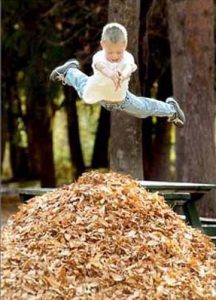 There are four main personality types when working with children. The personality type that is the most considered when discussing children that demonstrate behavioural management issues and problems is the AQUA personality. These beautiful souls work from mostly the right brain, are emotional, creative and have challenges with boundaries and rules.
There are four main personality types when working with children. The personality type that is the most considered when discussing children that demonstrate behavioural management issues and problems is the AQUA personality. These beautiful souls work from mostly the right brain, are emotional, creative and have challenges with boundaries and rules. Quite often, parents of children with bad or naughty behaviour can have high expectations of what is required from children. They forget that children need to be taught how to behave and how to socialise in different circumstances. Parents are really teachers. They teach their children how to behave, how to treat others and how to deal with things. We do this consciously and unconsciously. So lets look at ‘bad children’, ‘naughty children’, ‘bad behaviour’ and ‘naughty behaviour’ in children, of all ages including toddlers, teenagers /adolescents and primary school age. To start, there is really no such a thing as ‘bad child’ or ‘naughty child’. It is their actions and words that are inappropriate, depending on the standards and beliefs of the parent, teacher, carer and grandparent. Remember behaviour is the action, performance, activity, conduct and depending on what an individual perceives, it can be ‘bad’ or ‘good’ behaviour.
Quite often, parents of children with bad or naughty behaviour can have high expectations of what is required from children. They forget that children need to be taught how to behave and how to socialise in different circumstances. Parents are really teachers. They teach their children how to behave, how to treat others and how to deal with things. We do this consciously and unconsciously. So lets look at ‘bad children’, ‘naughty children’, ‘bad behaviour’ and ‘naughty behaviour’ in children, of all ages including toddlers, teenagers /adolescents and primary school age. To start, there is really no such a thing as ‘bad child’ or ‘naughty child’. It is their actions and words that are inappropriate, depending on the standards and beliefs of the parent, teacher, carer and grandparent. Remember behaviour is the action, performance, activity, conduct and depending on what an individual perceives, it can be ‘bad’ or ‘good’ behaviour.- Routines – Children feel secure when they know what is to happen. They have the opportunity to look forward to something. When the routines are made fun such as candles at dinner, aromatherapy for sleep, story time before bed, the children commence to goal set and look forward to the activity and the behaviour of loving and peaceful rather than ‘bad’.
- Boundaries – Healthy boundaries give children a sense of safety. They know their limits and where they be can accepted and loved. It is also part of the integration process children learn when they are maturing and learning so that the children understand what is acceptable as an adult and what is not. These boundaries are not limiting for a child but guide them to what appears safe to them, others and the environment.
- Deep Breathing – The simple and FREE technique of taking a deep breath makes huge changes to the outcomes on all levels of life and health for a child. When we take a deep breath it allows the children to ponder for a moment without getting involved in the drama of the imagination and right side of the brain ‘story’. When a child commences to feel anxiety, fear of any other negative emotion, the deep breath alters the perception as more oxygen circulates around the body, changing the perspective and chemical outcomes in the body. On a metaphysical level, the lungs are concerned how we react to situations and energy distribution. When taking a deep breath, we alter the energy from FEAR to LOVE and react differently. The energy distribution will be in LOVE not FEAR.
- In with the good and out with the bad – As parents, if we choose not get involved with the ‘bad’ behaviour and react less, the child learns that this does not get attention. The opposite applies to when the child does something loving, where there is more attention we give the learning lesson for the child is that they are rewarded.
- Positive Feed – If you perceive a child as a seed, and want to grow that seed to an extraordinary beautiful flower you will give the seed/child attention which will nourish it to grow. Verbal praise, rewards, positive outcomes, such as mini goal setting and of course healthy comments will help the child to grow and blossom. Encouragement is vital. The parents focus is more critical than the child’s focus as they can guide them like a coach.
- Healthy Food – Children brought up on mainly fresh fruit and vegetables have been proven to have a better outcome and perception of life. Try creating fruit salads, juicing and shakes at home using fruit and vegies. More home cooked meals and filtered water will make a huge difference to the child’s behaviour as well as to the whole family!!
- Play Inspirational Music – Music soothes the soul. It has been proven scientifically by Dr Emoto, that it changes the outcome, health and definitely growth and behaviour of the human being. Children react very well to music and will be inspired to perform accordingly. Try relaxation, classical music and have the music subtly playing in the background. The natural affect of the harmonic concordance within our body gravitates to anything that is peaceful – watch your children change too.
- Outdoor Activities – Children that are exposed to the elements such as sun, air, wind, water and earth build their immunity and are more relaxed. They also absorb essential vitamins and minerals necessary for growth and it will positively affect their behaviour. Have you ever noticed when children have been outside they come in alive and fresh?
- Physical Activity – When the human body is subjected to physical activity, there are certain chemicals and hormones that are released, especially serotonin, or known as the natural ‘happy’ drug. It makes children burn off the sugar and therefore less anger and of course the child feels great and exhausted. It encourages better sleep patterns and it is a fantastic way to deal with emotions by burning them off.
- Change – When a child is behaving ‘badly’, sometimes a parent can alter the scenario by changing the focus and reaction of themselves before attempting to do it in a child. A common problem is when parents go food shopping and the children get moody and their behaviour is unacceptable. If the Parent was to start singing or maybe do a dance in the supermarket aisle, automatically the child/ren will stop that behaviour and could even possibly join to have fun.


